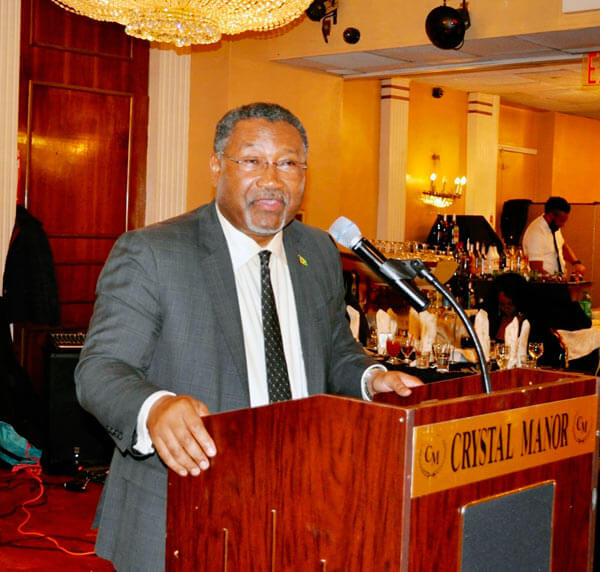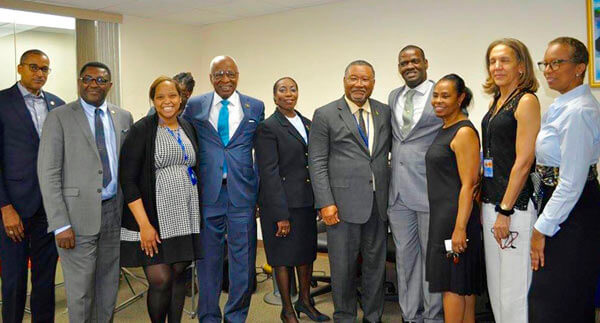The Guyana government, through the Ministry of Public Health, civil society organizations and professionals, both in and outside of Guyana, are slowly, but surely, taking action to combat the high rate of suicide incidents in rural areas of the country, according to Permanent Representative of Guyana to the United Nations, Ambassador Rudolph M. Ten-Pow.
Guyana was ranked #1 in the world in 2015, for suicide cases among women, according the World Health Organization (WHO), that recently put the Republic at a disparaging fourth place, that Ambassador Ten-Pow said is very little consolation.
The report said six of the eight countries with fewer suicide rates are CARICOM countries. Barbados and Antigua and Barbuda, however have zero incidents.
He revealed that Guyana has set up a Mental Health and Suicide Task Force to raise awareness, through education and counseling.
Ambassador Ten-Pow told an audience at a recent Women of Mission International (WOMI) gathering at the Crystal Manor, Brooklyn, that the task force added a mental health awareness initiative at the secondary school level in rural areas, where many of the suicides take place.
In a critical effort to combat mental illness, farmers would be trained to effectively store pesticides, and educated on how to spot women who ingest the liquid, noted the diplomat who argued that Guyana has the tragic distinction of being at the near top of the suicide spectrum, because a study shows it is very easy for people, particularly who live in rural and farming communities, to have access to pesticides.
Approximately, 62 percent of suicide cases come from ingesting liquid poisonous substances, said Ambassador Ten-Pow who pointed out that social stigma is attached to mental health illness in Guyana, where people who need help are often times reluctant to share their problems with others for fear of being ridiculed.
“The lack of social services, lack of counseling, absence of crisis hotlines, and alcohol abuse, which impair judgment of victims and often lead to bad decisions at critical times.” These are some of the root causes of suicide, said the diplomat.
“This is what we face in Guyana and it is a problem that has been with us for a long time.” He noted, however that the government is taking action to address these problems.”
Hope is on the way for citizens who will benefit from a new state-of-the-art hospital to replace the former neglected mental asylum. The modernized psychiatric hospital will be built on the East Bank, public road, according to Volda Lawrence, minister of public health who explained that the institution would provide counseling services and outpatient care.
“There are a growing number of organizations on the ground doing a great job to tackle suicide, one such is the Guyana Foundation Sunrise Center on the Essequibo Coast, that offers free mentoring programs and training in various occupational skills for youth,” he said.
The name Sunrise was chosen to give hope to potential suicide victims so that instead of people taking their lives, they could get up the next morning and experience the sunrise, added Ten-Pow.
In the meantime, the attaché called on Guyanese in the diaspora to make a financial contribution or use their vacation time to volunteer in one of the rural areas of their homeland in order to make a difference.
Suicide is the leading cause of death globally among young people between the ages of 15 and 29, said Ambassador Ten-Pow, adding, “Use whatever tools you have to help change attitudes, and prevent suicide.
























